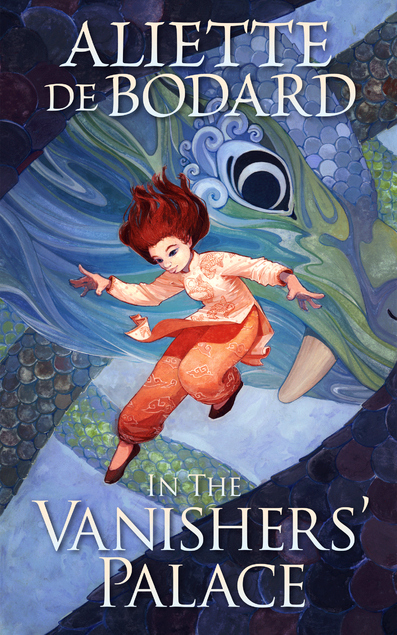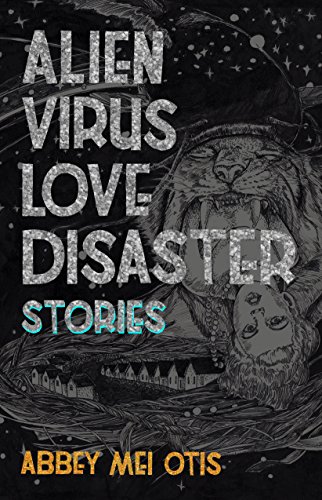
Month: January 2019
All the City Feels Asleep
but I think you know it’s not
there’s no moon about, it’s already slid past
still, it’s pretty quiet
nowhere but the cold collapse of night
these slow building blocks of sleep
feeling that sleep creep up the cheekbones
toward my eyes
still for some reason
the slow crinkle in the neck
the ache around the corners of the eyes
the cold toes
the distant murmur of rockets
finding this dark quiet so charming, or alarming,
that I can’t quite let it go
not yet
Books I Got the Most Out of in 2018
- Hawksmoor by Peter Ackroyd: I read this because of David Bowie. It was on his list of favorite books and his son started a sort of online freeform book club based on his dad’s favorite books. This book is super weird! A story that eats its own tail (tale?), set in different eras of London. Turns out I love books about London and books about detectives and books about secret histories and architectures. There’s nothing pleasant about this book, except the mesmerizing prose.
- Gnomon by Nick Harkaway: You can’t go wrong with Harkaway, you really can’t. The man can write! I’ve read every book he’s written and I’ll read every book he writes. A story about (what else?) a detective–actually, an inspector. It’s not exactly a mystery, but it is a fantastic story about memory and identity. It has one of the creepiest characters in a book I’ve ever read.
- Mrs. Caliban by Rachel Ingalls: A married woman falls in love with a sea monster. It’s funny and sad and more people should read it and know about it, probably.
- Puckoon by Spike Milligan: Another David Bowie pick. This is one of the funniest books I’ve read (while it’s also deeply offensive in almost every way, but what can you do?). An Irish novel from the 1960s. The border between Northern Ireland and Ireland is going to go through the middle of a town and the British government is going to put their border crossing station in the middle of a cemetery. There’s almost nothing but crazy hijinks.
- Six Four by Video Yokoyama: Somehow the PR guy in this Japanese police force solves a mystery. I don’t usually go in for the police procedural stuff, but for some reason, I found this one deeply compelling. It’s just really good.
- Down and Out in Paris and London by George Orwell: George Orwell writes movingly about his time in poverty in the early 20th century.
- The Gone World by Tom Sweterlitsch: I’m a sucker for time travel stories, even ones like this that are hiding inside of a “thriller” story.
- The Last Samurai by Helen Dewitt: Dewitt writes an extremely moving story about fathers and sons. Well, one son and several fathers. There aren’t any samurai in it, unless you count the cinematic ones.
- Space Opera by Catherynne Valente: No other book has reminded me so much of Douglas Adams’ Hitchhikers Guide books. A real pleasure.
- Black Lamb and Grey Falcon by Rebecca West: The best book I read in 2018 (and many other years). A travelogue of 1930s Yugoslavia. I can’t think of another book that charmed me so effortlessly or that made me feel the burden and weight of history so keenly. Rebecca West is someone I would’ve loved to have known. But I’ll settle for her writing instead.
- The Earthsea series by Ursula Le Guin: Some of these were a re-read and some of them were new to me. Sometimes you need a little magic in your life. These books are a good place to get them. (See also: Beren and Lúthien by JRR Tolkien)
- A Distant Mirror: The Calamitous 14th Century by Barbara Tuchman: Europe in the 14th century was probably the worst time and place to be alive as a human being. A little comfort reading. Knights were freaking terrifying (“worms in iron cages”). And disease was pretty terrible too.
But though there were no formal parties, it is true that there were now two broadly opposing worldviews floating in the political ether waiting to be tapped as needed. As the crisis over the Lex Agraria revealed, it was no longer a specific issue that mattered so much as the urgent necessity to triumph over rivals. Reflecting on the recurrent civil wars of the Late Republic, Sallust said, “It is this spirit which has commonly ruined great nations, when one party desires to triumph over another by any and every means and to avenge itself on the vanquished with excessive cruelty.” Accepting defeat was no longer an option.
Excerpt From
The Storm Before the Storm
Mike Duncan
Lightning Rods by Helen DeWitt

If you’d told me that Helen DeWitt would follow up her exquisite The Last Samurai with a novel about a guy who solves America’s workplace sexual harassment issue by starting a company to provide anonymous sexual encounters as a workplace perk, I’m not sure I would’ve believed you. For a novel primarily about sex, it’s not very erotic or salacious, but it is funny. Doesn’t hold a candle to her other novel or her collection of short stories, to my mind, but for what it sets out to do–satirical take on American gender relationships in the workplace–it does it pretty well. The best thing this book does is present sex as really not that big a deal, because it’s just something that everyone does, so why not be pragmatic about it? Why treat it as something separate and unusual? It’s a refreshing take on it.
Unlike The Last Samurai, I wouldn’t recommend this to everyone, but it’s a quick, smart, funny read.
A Couple Books

In the Vanishers’ Palace by Aliette De Bodard is a novella-length science fiction story in what might be some future Earth where a race of aliens have come and gone–the Vanishers–leaving disease and desolation in their wake. It’s an intimate story of a human (?) woman living on a Vanisher spaceship–maybe? everything is very vague–with two abandoned Vanisher children. She trades her healing service for the servitude of a young woman to teach her children. It’s described as a retelling of Beauty and the Beast and that’s certainly accurate. This story shines in its portrayal of the weird alien technology as a kind of bizarre magic based, I think, in some kind of super-tech genetic engineering. A quick, charming read.

The weirder the better a la science fiction, as far as I’m concerned. The stories in this collection, Alien Virus Love Disaster by Abbey Mei Otis, are weird. I think I probably checked this book out from the library based on its title. Read it for: the title story, “Moonkids”, “Teacher”, “Sweetheart”, and “Ultimate Housekeeping Megathrill 4”, but all of the stories are worthwhile. The language in these stories is often casually bizarre, as though they’re being written by people used to writing and speaking and English from a couple parallel universe away.
I Read Some More Books
The Explorer by James Smythe: This book dances on a kind of knife’s edge for the first third of it or so. The book captures the protagonist’s tedium and dread at being the sole remaining survivor of a doomed space expedition almost too well. Thankfully the book swerves into true weirdness after that first third and becomes a fascinating meditation on the inability to see ourselves as others see us. I’ve been pretty down on first-person narratives lately, because of how limiting and constrained they are, but this book uses first person point of view particularly effectively. I dug it.
The Paper Menagerie and Other Stories by Ken Liu: Two of the stories in this collection made me cry and I’d say that almost all of them are worth reading. I especially liked: “The Paper Menagerie”, “The Bookmaking Habits of Select Species”, “State Change”, “All the Flavors”, “The Litigation Master and the Monkey King”. I expect many of these stories can be found online. Go digging!
Doom Patrol: Nada by Gerard Way: It’s impossible to read this without seeing Grant Morrison’s influence. Which is fitting, I suppose, given Morrison’s long run on Doom Patrol. I found the issue with Niles “The Chief” Caulder–their former leader–especially satisfying. The story’s pretty gonzo and surreal but manages to keep a slight hold on the reins so that things don’t devolve into pure nonsense. Also, the art is quite lovely.